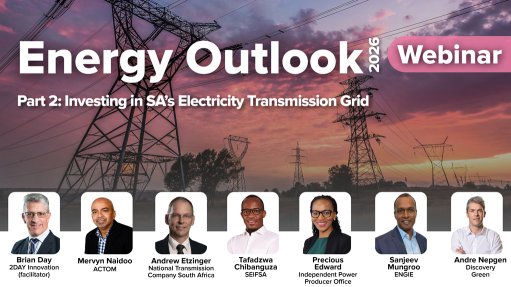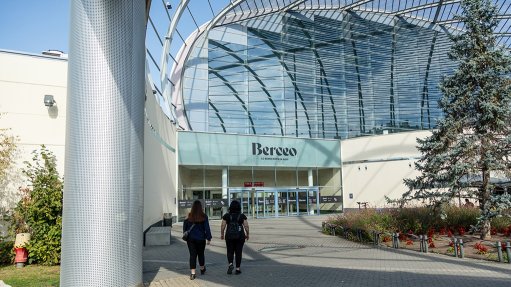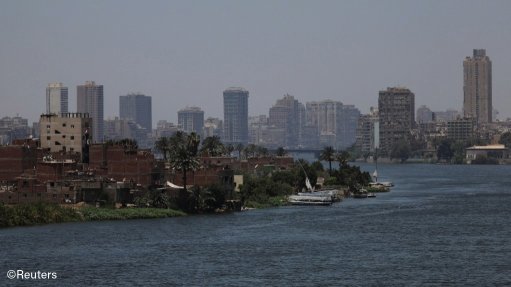New packaging investment


PRECIOUS PLANET RANGE Libstar aims for 40% of its Food Service packaging to be entirely sustainable - either recyclable, biodegradable or compostable - by the end of the year
Consumer packaged goods group Libstar invests in a sustainable packaging range – its Precious Plant packaging range – along with other biodegradable and compostable products, to reduce waste and contribute to the circular economy.
Industrial research organisation Council for Scientific and Industrial Research’s 2021 report, ‘Increasing Reliable, Scientific Data and Information on Food Losses and Waste In South Africa’, states that 45% of available food supply in South Africa is lost or wasted. The report goes on to state that about 49% of that waste happens in the processing and packaging stage of the value chain.
“In 2018, we started off with just five biodegradable and compostable products in our Food Service offering. Now, we have over 120 and counting, including our Precious Planet range of envirofriendly packaging products. By the end of the year, we are aiming for 40% of all our Food Service packaging to be entirely sustainable, either recyclable, biodegradable or compostable. That is essential if we are to do our part in being responsible corporate citizens,” says Libstar group member Rialto commercial executive Derek Couzens.
Going Round in Circles
A circular economy is an economic model designed to minimise waste by moving away from single-use materials and encouraging sustainable production techniques. From a packaging perspective, this means creating and using materials that can be recycled, used as compost or reused repeatedly.
For example, the push for creating circular economies has fuelled the use of bagasse, a waste product of sugarcane, as a sustainable packaging solution.
As things stand, recycling is one of the best practical examples of what circular economies could look like. To contribute to reducing waste and increasing recovery, as well as the recycling and reusing of materials in the South African market, extended producer responsibility fees were introduced locally in November 2021. Rialto has moved quickly to achieve compliance in this regard.
In Europe large portions of waste are either incinerated or exported, and therefore the region has a lower recycling rate compared to South Africa where very little waste is incinerated. In 2019, South Africa achieved an output recycling rate of 23.4% versus a 7.9% recycling rate for Europe.
According to industry association Paper Manufacturers Association of South Africa, in 2022 the local recycling rate of paper and board in South Africa was 70% versus the global rate of 59.1%.
Generation Sustainability
They may not have started the trend, but Millennials and Gen Z have been nicknamed the “sustainability generations” and their fervour is influencing the generations before them.
According to the independent international organisation World Economic Forum, just over one-third of Gen Z respondents they polled said they choose brands demonstrating environmentally sustainable practices or values, while 28% have stopped buying from brands with poor ethical or sustainability values. This, in turn, has encouraged responsible brands to pursue more environmentally ethical modes of doing business.
“The research we have encountered shows that 83% of Millennial consumers prefer to pay more for sustainable packaging. “This, in turn, has led to some sustainable products growing at a rate of more than seven times that of non-sustainable ones. That means being enviromentally ethical is not just the right thing to do, it is also an ultimate sustainable value-add to one’s business and business partners,” says Couzens.
The More You Know
Consumption choices are powerful decisions that can shape markets and production patterns. They can have a tremendous impact on how companies and governments use and allocate natural resources.
Education around sustainable consumption, however, is a team effort that requires both consumers and producers to become responsible citizens to help make an economy truly circular.
Rialto, on a bimonthly basis, makes available on their website a “Green Gazette” to all its interested Food Service Packaging customers informing them of ongoing trends and matters of interest in this regard.
“Everyone has a role to play, and the key is the acceptance of our roles. “In the past that has been problematic, but we are seeing encouraging signs. For our part, the job is to make sure that our manufacturing and packaging processes are as green and ecofriendly as we can possibly make them. “Companies that fail to take sustainability seriously will have a hard task attracting the customers of the future,” Couzens concludes.
Article Enquiry
Email Article
Save Article
Feedback
To advertise email advertising@creamermedia.co.za or click here
Comments
Announcements
What's On
Subscribe to improve your user experience...
Option 1 (equivalent of R125 a month):
Receive a weekly copy of Creamer Media's Engineering News & Mining Weekly magazine
(print copy for those in South Africa and e-magazine for those outside of South Africa)
Receive daily email newsletters
Access to full search results
Access archive of magazine back copies
Access to Projects in Progress
Access to ONE Research Report of your choice in PDF format
Option 2 (equivalent of R375 a month):
All benefits from Option 1
PLUS
Access to Creamer Media's Research Channel Africa for ALL Research Reports, in PDF format, on various industrial and mining sectors
including Electricity; Water; Energy Transition; Hydrogen; Roads, Rail and Ports; Coal; Gold; Platinum; Battery Metals; etc.
Already a subscriber?
Forgotten your password?
Receive weekly copy of Creamer Media's Engineering News & Mining Weekly magazine (print copy for those in South Africa and e-magazine for those outside of South Africa)
➕
Recieve daily email newsletters
➕
Access to full search results
➕
Access archive of magazine back copies
➕
Access to Projects in Progress
➕
Access to ONE Research Report of your choice in PDF format
RESEARCH CHANNEL AFRICA
R4500 (equivalent of R375 a month)
SUBSCRIBEAll benefits from Option 1
➕
Access to Creamer Media's Research Channel Africa for ALL Research Reports on various industrial and mining sectors, in PDF format, including on:
Electricity
➕
Water
➕
Energy Transition
➕
Hydrogen
➕
Roads, Rail and Ports
➕
Coal
➕
Gold
➕
Platinum
➕
Battery Metals
➕
etc.
Receive all benefits from Option 1 or Option 2 delivered to numerous people at your company
➕
Multiple User names and Passwords for simultaneous log-ins
➕
Intranet integration access to all in your organisation



















